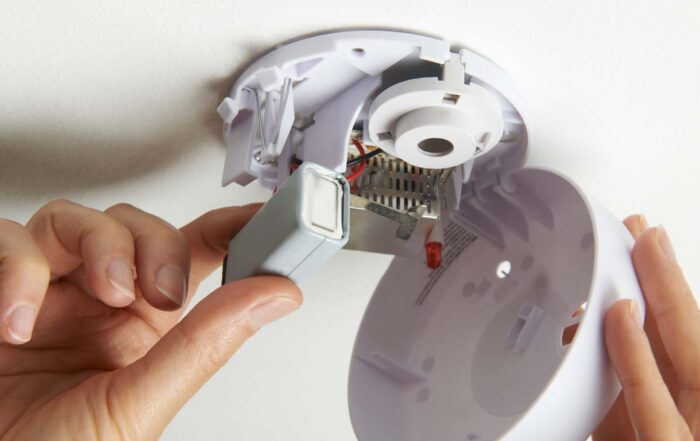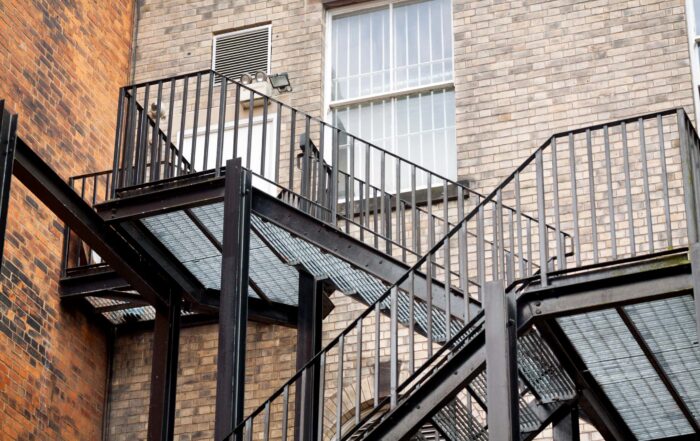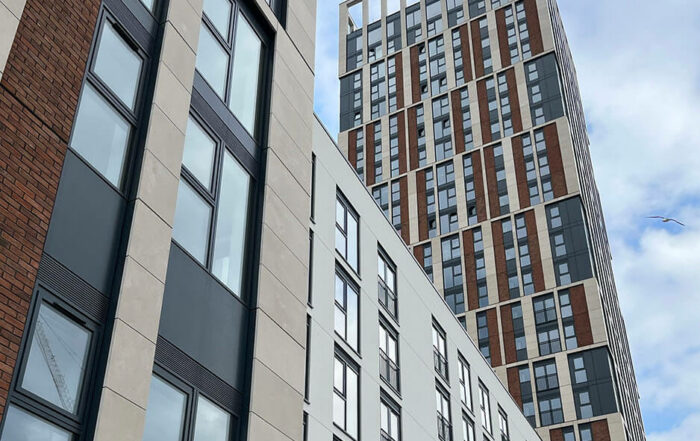The Ultimate Guide to CCTV Regulations in the UK
There are Regulations and Laws regarding the use of CCTV systems and IP/Surveillance cameras in the UK. Whether or not these regulations apply to you will depend on what you intend to use the security cameras for.
There are specific regulations for CCTV cameras in commercial and public spaces, but this doesn’t mean that you shouldn’t be responsible and mindful of your home CCTV system or surveillance cameras. This is because there’s a chance, regulations will apply in a lot of domestic use cases.
At Sovereign Fire and Security, we are one of the leading security providers in the South West and UK. With clients across the UK from domestic properties to multinational corporations. We offer a range of security services to keep your property safe.
Official CCTV and Surveillance Camera Regulations and Laws
The information Commissioner’s Office and The Surveillance Camera Commissioner (SCC) are the regulatory bodies and people responsible for regulating Security Camera Systems in the UK.
The information Commissioner’s Office
The information Commissioner’s office (ICO) regulates and enforces the Data Protection Act 2018 and GDPR (General Data Protection Rights).
We mentioned earlier that regulations may apply in some cases of domestic use and this is the case for GDPR and The Data Protection Act. If your CCTV system can capture any images from shared or public spaces like your neighbour’s home, garden, or a public area; then GDPR and Data Protection Act will apply.
It’s important to make sure you adhere to these restrictions and are aware of where your CCTV systems are capturing images or video from. This is because if you breach them then you will be subject to regulatory action and potentially legal action from the affected people.
The Surveillance Camera Commissioner
The SCC does not regulate domestic CCTV systems as they are appointed by the Home Office and are separate from the government. They enforce and ensure the responsible use of surveillance cameras.
The SC Code only applies to the use of surveillance by authorities like the police, local authorities and councils. It has 12 guiding principles that make sure that surveillance cameras are effective for their intended use, including the level of surveillance. The principles also outline what is appropriate and ensure transparency.
When do the Laws apply for Domestic Use?
As outlined above, you do not need to worry about regulations and restrictions if your home CCTV system only covers your property boundary. This means, if it covers a neighbour’s garden, public footpath, or street then regulations will apply.
It’s important to note, regulations do not necessarily mean you cannot set up a CCTV system that captures public spaces. You can still capture areas outside of your property boundary as long as you are responsible and take the correct steps to manage your CCTV system properly.
How to operate and manage a Domestic CCTV System
There are a few things you can do make sure you are adhering to CCTV rules and regulations, even if your cameras cover areas outside of your property boundary. These measures are meant to ensure responsibility and transparency. Although there is no specific guidance, we’ve put together some tips for making sure you cover all the necessary concerns.
The information Commissioner’s office outlines some ideas for responsible CCTV management, so we’ve added some useful tips to hopefully give you a better understanding of the process.
- Make People Aware of your Recording Equipment – This is very important and can be extremely important for reducing the number of concerns or questions about your CCTV system. We recommend writing a letter addressed to all affected neighbours and as many people on your street as necessary. Put them in your neighbours’ letter boxes or in central places like a building notice board.
- Provide Copies of Recordings – Under GDPR you must comply if someone requests a copy of a recording or images, remember to give it to them as soon as possible to avoid any reports to regulatory bodies
- Delete Recorded footage frequently – This can be done manually but you can also set-up automatic footage deletion with most CCTV systems. See how our user-friendly CCTV solutions make this a seamless and straightforward process.
- Delete Recordings if requested – This is extremely important and can help with avoiding ICO enforcement or legal action; unless you really need the footage for something, it’s easier to just delete it when requested to do so.
- Stop Recording people who don’t want to be recorded – If, for any reason, someone does not want to be recorded and has requested that you stop then it’s essential to make sure the area is no longer covered by your CCTV system. You can risk ICO intervention if you choose to not point your cameras in another direction.
CCTV Management and Compliance with Sovereign Fire and Security
Now we’ve addressed which regulations apply to different use cases of CCTV systems and outlined some ways to ensure effective and responsible management, you should have a better idea of how to manage and set up your CCTV to ensure it is compliant.
It depends on the areas you want your CCTV to cover. If you are capturing footage solely within your own property boundaries then you have nothing to worry about.
Sovereign Fire and Security provide a wide range of home security and surveillance options from advanced surveillance systems to intruder detection systems. We also offer ongoing CCTV maintenance and optimisation for CCTV and security systems. We carry out all the necessary tests to ensure your systems are compliant and working efficiently.
For more information or assistance, please contact our team, who will be more than happy to help with any enquiries or questions you may have.
Get your fire and security maintained by NSI Gold accredited experts now – get in touch!
Recent Articles
Innovations and Regulations for Smoke Detection and Fire Alarms
Making sure your fire safety systems are up to standards saves lives, protects your building, and ensures you’re compliant with government regulations. However, with so many types of alarm systems [...]
Fire and Security – The Complete Guide to Fire Escape Regulations in the UK
Fire risks are real, with 622,173 incidents attended by Fire and Rescue Services in England for the year ending March 2023. Many things can keep you safe from fires. But [...]
Fire Safety for Mixed-Use Buildings
Ensuring you have up to date fire safety systems for your mixed-use building isn’t just a good way to keep your residents and structure safe and secure – it is a legal requirement. [...]




